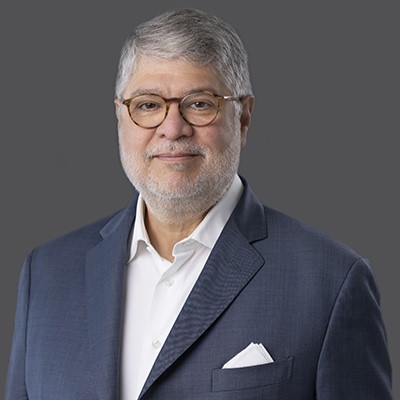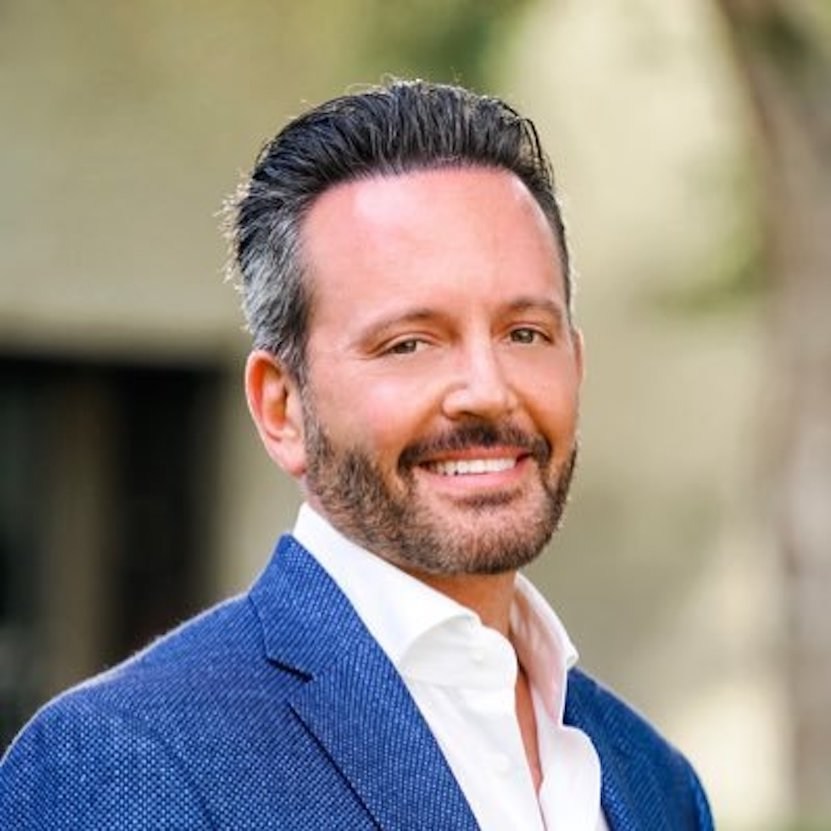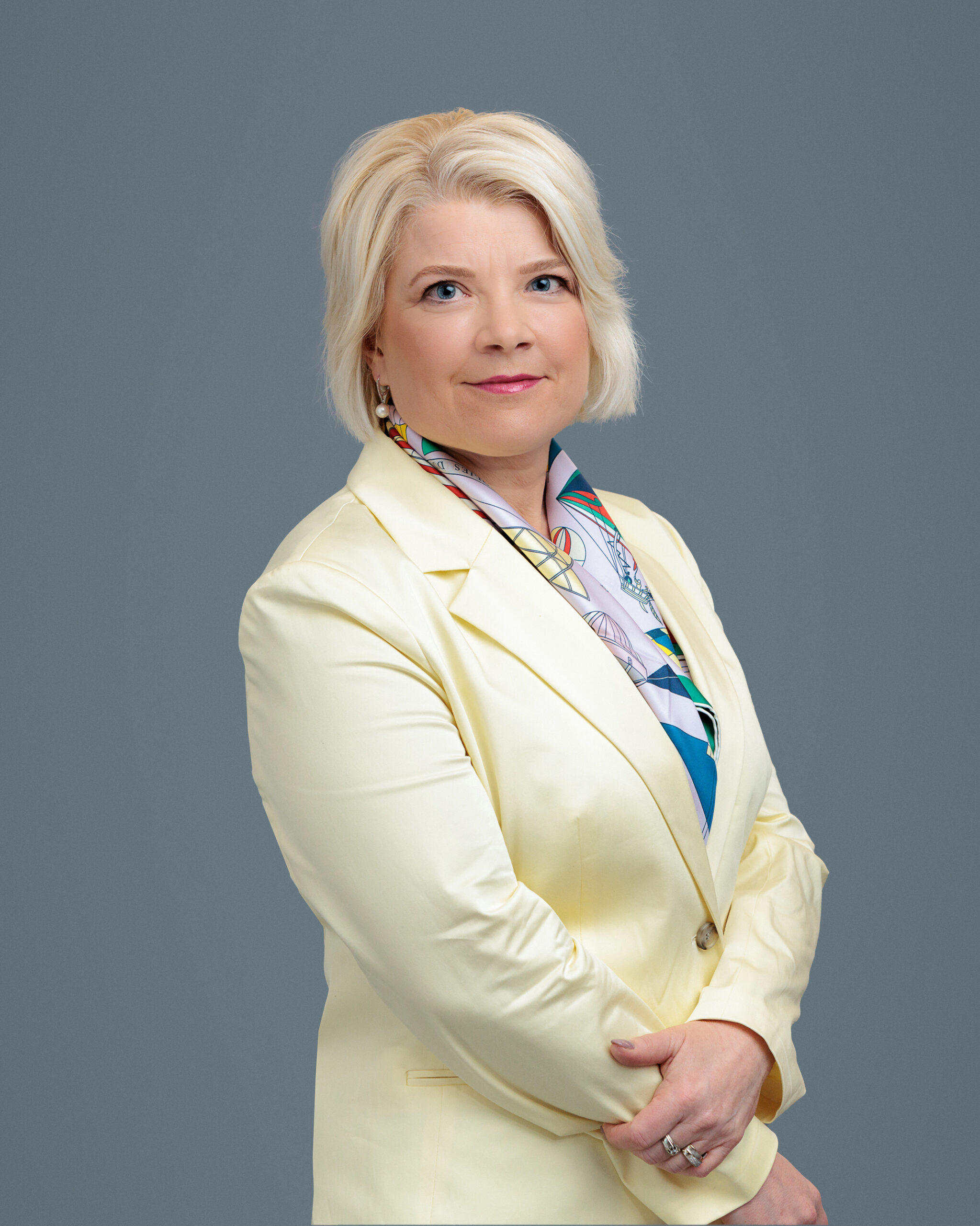The best-paid CEOs of 2023 fall largely into two groups: They’re either running some of the world’s biggest drugmakers, or they were given huge incentive packages in their first year on the job or as head of a newly-public company.
Endpoints News reviewed hundreds of annual proxy filings across biopharma. This is the first article in a series examining CEO and employee pay trends, after analyzing over 500 CEO pay packages last year. Like our analysis of 2022 pay packages, the top 20 CEOs brought in paydays valued at over $20 million.
The top-paid list has its staples in pharma giant CEOs like Amgen’s Bob Bradway, Pfizer’s Albert Bourla, and Eli Lilly’s David Ricks. But it also has some smaller biotechs dishing out equally hefty awards at startups like Neumora Therapeutics, Arcellx, and Vir Biotechnology.
As in years past, Endpoints used the estimated fair value of newly-issued shares and stock options. This tracks how much a company’s board decided to pay its top leader in the past year, whereas other methods better approximate a CEO’s take-home pay by calculating the value of cashed-in or vested equity instead. Those stock awards, however, are typically granted years ago.
Here are 2023’s highest-paid CEOs.
#1: Acelyrin former CEO Shao-Lee Lin — $88,678,569
 Shao-Lee Lin
Shao-Lee LinThe highest-paid biopharma CEO of 2023 — on paper — was Shao-Lee Lin, the former CEO of Acelyrin. The immunology startup raised over half a billion dollars in the industry’s largest IPO of 2023, and shortly thereafter awarded its founder Lin a correspondingly large pay package.
Following its public debut, the board hired a consultancy that determined Lin’s pay was in the bottom quartile compared to CEOs of other biopharmas that recently IPO’d. In particular, the firm found the value of Lin’s equity holdings lagged behind this peer group.
The board’s compensation committee subsequently granted a one-time supplemental award in August 2023. One-third of that equity were shares that would vest over time, while two-thirds of the stock was contingent on its stock performance and company goals, like regulatory submissions and commercial readiness.
This is where Lin’s potential fortune remains only on paper. After awarding that equity package, Acelyrin’s lead drug candidate failed a late-stage study last September, sending its stock into a tailspin. Lin stepped down as CEO this May, and the board stated her performance-based stock awards — which made up the vast majority of her reported 2023 pay — would be forfeited in their entirety. Lin’s severance included a $1 million lump sum payment, accelerated vesting by 18 months on her outstanding equity, and an extension in exercising stock options through March 31, 2025.
#2: Royalty Pharma CEO Pablo Legorreta — $84,837,077
 Pablo Legorreta
Pablo LegorretaIn contrast to most biotech CEOs, whose pay depends on stock performance, Pablo Legorreta stands apart at Royalty Pharma.
Legorreta founded the company, which buys royalty rights from drugmakers, in 1996 and is awarded a simpler, more direct pay package. Instead of salary, bonuses and stock, Legorreta receives 6.5% of the cash receipts from its royalty investments each quarter, along with 0.25% of the quarterly value of the company’s security investments.
In 2023, Legorreta received $50.7 million from Royalty’s typical business. He got another $34.1 million from payments related to Biohaven. Royalty had acquired royalty rights and equity in the migraine drugmaker before it was acquired by Pfizer in 2022. Last year, Pfizer paid $525 million to Royalty in milestone payments for its migraine spray Zavzpret, winning FDA approval and progress on an oral version of the drug.
Royalty’s compensation committee stated Legorreta’s performance has been strong, calling his pay “reasonable and appropriate” in its proxy filings.
#3: Bausch + Lomb CEO Brent Saunders — $45,309,051
 Brent Saunders
Brent SaundersBrent Saunders, one of pharma’s most prolific dealmakers, took in one of the industry’s biggest paydays after returning to his former employer in 2023.
Saunders received a $6.5 million sign-on bonus after starting as CEO last February. The board stated that bonus considered forfeited pay from “providing services to his former employer and other boards of directors.” Saunders also took home an annual bonus of nearly $2.2 million, based on Bausch + Lomb’s performance. The former Allergan CEO wasted little time in making his mark on the ophthalmology specialist, paying $1.75 billion to acquire the dry-eye drug Xiidra from Novartis after just a few months on the job.
About $36 million of his 2023 pay came from stock and option awards. Even though Bausch + Lomb is far from the industry’s top ranks, with the company valued at about $5.3 billion, Saunders is expected to continue receiving a hefty pay package, including a planned $14 million in additional equity awards in 2024, according to his contract.
A Bausch spokesperson said more than 96% of Saunders’ pay — excluding his signing bonus — is considered “at risk” and tied to the company’s success. “That bonus and an initial equity award were necessary to recruit an experienced CEO with detailed knowledge of Bausch + Lomb who is highly regarded in the industry,” the spokesperson added.
#4: Vir Biotechnology CEO Marianne De Backer — $39,491,495
 Marianne De Backer
Marianne De BackerMarianne De Backer has one of the most challenging jobs in biotech, tasked with leading a major strategic change for Vir Biotechnology. The company thrived during the pandemic, developing a Covid-19 antibody therapeutic, but has struggled to maintain those highs.
CEO George Scangos retired in 2023, and Vir hired De Backer, a Bayer and J&J dealmaking veteran, to write its next chapter. The board awarded a pay package of nearly $40 million to do so, with $13.4 million in stock awards and $21.6 million in stock options.
De Backer received a $5 million cash signing bonus, split over two years, “designed to offset foregone compensation,” according to the proxy, while also factoring in the disruption of relocating her family from Germany to San Francisco. Additionally, the company reimbursed De Backer for $437,179 related to relocation expenses and tax gross-ups.
A company spokesperson said much of De Backer’s pay is “one-time in nature associated with her hire,” adding the moving reimbursement is typical market practice.
#5: Madrigal Pharmaceuticals CEO Bill Sibold — $32,268,400
 Bill Sibold
Bill SiboldSibold joins De Backer and Saunders in jumping to a CEO spot with a big pay package. Sibold, a Sanofi veteran who helped launch the megablockbuster Dupixent, joined Madrigal last September to guide the $6 billion biotech through its launch of Rezdiffra, the first FDA-approved NASH drug.
Most of his $32 million pay package is in equity, with $9.25 million of stock vesting over four years and $9.25 million in shares that vest if they clear certain price hurdles over the next five years.
In its proxy filing, Madrigal stated it is not disclosing the specific stock price hurdles “because we believe advance disclosure of the thresholds could cause significant competitive harm to our business.” The board stated that rival biotechs could use those thresholds to “undercut the value of the PSUs by offering a sign-on bonus or a more easily achievable compensation package to induce our CEO to leave.”
#6: Iqvia CEO Ari Bousbib — $29,151,752
Ari Bousbib has run the data drug analysis giant Iqvia since 2016 and been a constant presence among the best-paid CEOs. Last year, he brought in nearly $30 million, including a $1.8 million base salary, a $4.8 million bonus, and equity valued at over $21 million.
The board considered several factors in Bousbib’s bonus, including financial metrics like revenue, free cash flow, and net leverage ratio. The board also noted improvements in keeping workers, citing Iqvia’s 12-month attrition rate dropping from a 20% high in 2021 to 17% in 2022 and 11% last year.
#7: Johnson & Johnson CEO Joaquin Duato — $28,397,240
The obesity drug frenzy may have vaulted Eli Lilly and Novo Nordisk over Johnson & Johnson as the industry’s most valuable companies, but J&J CEO Joaquin Duato still beat them out in pay.
Duato, who succeeded Alex Gorsky in 2022, received equity that made up about half his pay total. Most of that equity is tied to J&J’s earnings per share and total stock return compared with a peer group over three years.
#8: Eli Lilly CEO David Ricks — $26,565,732
David Ricks enjoyed a $5 million bump to his pay total in 2023, amid Lilly’s stunning success in obesity. This was Ricks’ largest pay package since becoming CEO in 2017. That includes a $1.6 million base salary, $18.8 million in equity, and a $4.4 million bonus. The compensation committee determined his bonus based on Lilly’s revenue, earnings per share, and pipeline progress.
Ricks’ equity awards are tied to achieving certain financial goals, like growing the company’s EPS, stock price, and if it outperforms peer stocks through 2025.
A Lilly spokesperson said the compensation committee set executive pay by considering “individual contributions, Lilly’s 2023 performance, peer group data, input from its independent compensation consultant, shareholder feedback, and the committee’s own judgment.”
#9: Fortrea Holdings CEO Thomas Pike — $26,320,395
The lab services giant Labcorp spun off Fortrea last summer as an independent contract research organization. The company hired Thomas Pike, the former Quintiles executive, to lead the new company, with his first-year pay package valued at about $26 million.
Over $24 million of that is in equity “intended to provide an equivalent value of three years of grants,” according to Fortrea’s proxy statement. Most of it was awarded as a split between restricted shares and options in August, shortly after Fortrea completed its spinout. Pike did not receive equity in 2024 and is not expected to receive any equity grants through 2025 as well, according to the filing.
#10: Teva CEO Richard Francis — $25,706,880
Former Sandoz CEO Richard Francis reeled in a $25 million-plus payday in his first year at Teva.
Francis’ contract includes a $5 million sign-on cash bonus paid out over three years, as well as $19 million in shares that vest depending on achieving company goals, like reducing debt and returning to growth, and remaining on the job over the next three years.
#11: AbbVie CEO Richard Gonzalez — $25,661,972
While Richard Gonzalez retired as AbbVie CEO this month, his last year on the job included a $3.5 million bonus — 11% lower than 2022 and 29% lower than 2021. The board noted the smaller bonus weighed Gonzalez’s “strong execution” against lost revenues from the patent cliff of its best-selling drug, Humira.
“The committee believes this outcome appropriately balances the company’s strong achievement against plan with the reduction in actual financial results compared to prior years,” the proxy states.
With his longtime No. 2 Rob Michael taking over the top spot, Gonzalez appears to have succeeded in pitching a post-Humira plan for AbbVie. The drugmaker’s shares are up 25% in the past year. The company is relying on biologics like Skyrizi and Rinvoq to fill Humira’s shoes, while also acquiring biotechs like Cerevel Therapeutics and ImmunoGen that push the pharma deeper into neurology and cancer.
#12: Arcellx CEO Rami Elghandour — $24,964,306
Arcellx is one of the few IPO bright spots in recent years, with the cell therapy startup’s stock up over 200% since an early 2022 public debut. CEO Rami Elghandour saw his pay jump from $14 million in 2022 to nearly $25 million in 2023.
Last year’s payday was about 96% equity through a mix of restricted stock and options. About $14 million came from a one-time award of performance-based shares that Elghandour was initially set to receive after its IPO. He declined that grant to ensure the company had enough equity reserves for every employee to receive equity grants, a spokesperson said. The compensation committee re-granted those shares in 2023. Elghandour will only earn all the restricted shares if Arcellx is worth more than $5 billion. The biotech currently commands a market value of about $2.9 billion.
#13: Amgen CEO Bob Bradway — $22,643,650
Amgen’s leader has taken in a $20 million-plus payday for each of the past four years, with his 2023 package being his largest since starting as CEO in 2012.
The board awarded Bob Bradway a $4.3 million bonus, primarily based on financial metrics like revenue and net income. He received an annual equity package valued at $15.9 million for each of the past three years. The board decided to boost that equity to $18 million per year starting in 2024 “to recognize his successful leadership” of the $167 billion market cap giant.
#14: Gilead CEO Daniel O’Day — $22,607,690
Longtime Roche leader Daniel O’Day has surpassed the five-year mark at Gilead with mixed results. The California pharma’s stock trades near the same level as when he joined, and O’Day has whiffed on some big M&A bets. Most notably, Gilead has already taken over $5 billion in impairment charges on its $21 billion acquisition of Immunomedics in 2020, as the key cancer drug behind that deal has stumbled in the clinic.
O’Day still brought in a top pay package in 2023, valued at $22.6 million. That includes a $1.74 million base salary, a $4 million bonus, and over $15 million in equity. Half of those equity awards require hitting stock and revenue targets. The other half are shares and options that vest over time.
#15: Neumora Therapeutics CEO Henry Gosebruch — $21,999,269
After two decades in M&A banking, Henry Gosebruch joined AbbVie in 2015 and left last year to lead the startup Neumora. Gosebruch received a $2.5 million sign-on bonus and equity valued at over $18 million.
Neumora went public last fall, and the $1.4 billion biotech is advancing a range of neurological treatments. Its most advanced program is in a Phase 3 depression study.
A company spokesperson said Gosebruch’s pay was mainly long-term equity incentive to align his goals with “value creation for shareholders.” They added the company seeks to make its executive pay “reasonable and competitive.”
#16: Pfizer CEO Albert Bourla — $21,562,064
As the pandemic boom wanes, so has Albert Bourla’s pay, falling from $33 million in 2022 to about $22 million last year.
Most notably, Pfizer’s board declined to award Bourla or other top Pfizer executives any bonus for 2023. Bourla had received $7.65 million and $8 million bonuses over the previous two years.
“Although the financial performance of our non-Covid products largely met their objectives, the lower-than-expected demand and resulting sales for our Covid-19 products caused the company to underperform against our annual financial targets,” the proxy states. “While performance against the pipeline and ESG modifiers generated a positive modifier, the committee, in consultation with its independent compensation consultant, and using a holistic approach, decided that no bonuses would be paid to” the company’s leadership team.
Specifically, the Pfizer board set a 2023 revenue target of $68.8 billion, and Pfizer ended the year at $59.3 billion in revenue. It also fell well short of the board’s goals for earnings per share and cash flows.
Even without a bonus, Bourla is among the highest-paid in the industry. His base salary is nearly $1.8 million, paired with new equity awards valued at over $17 million.
Pfizer’s proxy also forecasts his 2024 pay package at $23.4 million, including equity valued at $18 million. A Pfizer spokesperson said the board and pay committee views that stock award as “an appropriate performance-based incentive opportunity and recognizes Dr. Bourla for his leadership and focus on Pfizer’s long-term strategy.”
#17: AstraZeneca CEO Pascal Soriot — $21,515,210
Pascal Soriot is the sole European-based executive on this list, but not without a bit of effort — and controversy.
Soriot has made the case — sometimes publicly — that he is underpaid, particularly when looking at his US-based peers. AstraZeneca’s board grappled with that geographical difference in its latest pay report, stating that both 40% of its senior leadership and 40% of its revenues are in the US. The compensation committee said it is seeking to boost Soriot’s max bonus potential and equity award amount to offer “more competitive” pay packages to its leadership.
For 2023, Soriot brought in nearly £17 million, or about $21.5 million. The board faced opposition from top shareholder advisory groups in its plan to boost Soriot’s future pay to nearly £19 million. While an advisory group called it “excessive,” some of AstraZeneca’s largest shareholders defended the move, arguing Soriot is “massively underpaid.” Ultimately, a majority of shareholders voted this spring in favor of Soriot’s pay package.
A company spokesperson noted that AstraZeneca has brought in a total shareholder return of 40% over the past three years, beating peer companies and the broader stock market.
As a foreign filer, AstraZeneca reported its pay totals differently than the rest of this list by factoring in the value of a rising stock price on Soriot’s long-term equity awards.
#18: Vertex Pharmaceuticals CEO Reshma Kewalramani — $20,594,441
Reshma Kewalramani led Vertex beyond cystic fibrosis in 2023, as the biotech won approval for Casgevy, its CRISPR-based therapy for sickle cell disease and beta thalassemia.
Kewalramani saw a healthy pay jump, going from just under $16 million to over $20 million. She earned a $1.5 million base salary, $4 million bonus, and $15 million in stock awards.
The board is also awarding a further boost in 2024, disclosing plans to grant a $17.1 million equity package this year. Portions of that are tied to one-year and three-year financial and non-financial goals. The company doesn’t disclose the ongoing non-financial goals beyond saying they are based on “multiple clinical milestones,” citing competitive reasons.
#19: Merck CEO Rob Davis — $20,273,287
Rob Davis brought in just over $20 million for the first time since taking over for Ken Frazier in 2021. He saw a 12% increase in his 2023 pay package, primarily driven by more equity valued at $14 million.
Merck’s board is set to give Davis another pay bump in 2024, approving a $15.5 million target equity package, a $2 million increase from 2023.
#20: McKesson CEO Brian Tyler — $20,221,325
Brian Tyler, a McKesson lifer, first joined the distribution giant in 1997, becoming CEO in 2019. He brought in a $20 million payday for the company’s fiscal 2023, which runs from April 2022 through March 2023.
Tyler received a base salary of nearly $1.5 million, $13.5 million in stock awards, and a bonus of $3.1 million. The board uses a formula based on earnings per share, operating profits, and free cash flow in determining its bonus.
A special footnote: 3 CEOs we missed
Finally, a quick addendum to last year’s report. These three CEOs would have made the cut, but weren’t included in the analysis.
Roivant CEO Matt Gline: $48,978,825
Matt Gline wasn’t alone in receiving a massive options package, valued at $47.2 million, with fellow Roivant executives Eric Venker and Mayukh Sukhatme receiving similar awards. In its filing, Roivant said these option awards “were intended to cover a multi-year period.” The New York biotech uses a different fiscal calendar, leading it to file its proxy later in the summer — and miss many annual pay roundups.
Former ProKidney CEO Tim Bertram: $46,133,565
In a very 2022 set of circumstances, ProKidney went public via a Chamath Palihapitiya-led SPAC. Its CEO at the time, Tim Bertram, took in a $46 million payday, which included over $44 million in equity. Bertram left the biotech last November, as ProKidney’s stock price fell more than 85% since the SPAC. It’s unclear how much equity Bertram may still hold, but the majority of his 2022 pay came in options with a $10.33 strike price — options now deeply underwater with the stock trading around $2. The biotech is now testing its lead drug for chronic kidney disease in Phase 3 studies.
Acrivon Therapeutics CEO Peter Blume-Jensen: $21,685,240
With an IPO in November 2022, we missed including Acrivon in last year’s pay report. CEO Peter Blume-Jensen’s payday was primarily driven by equity awards granted just after its IPO. Blume-Jensen received a mix of options and restricted shares that vest over four years. Acrivon’s stock has dropped about 60% since its IPO.
Correction: This story has been updated to remove a reference to AstraZeneca CEO Pascal Soriot talking about being underpaid “for years.”